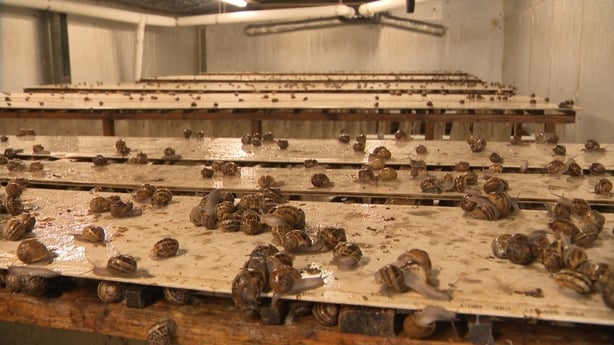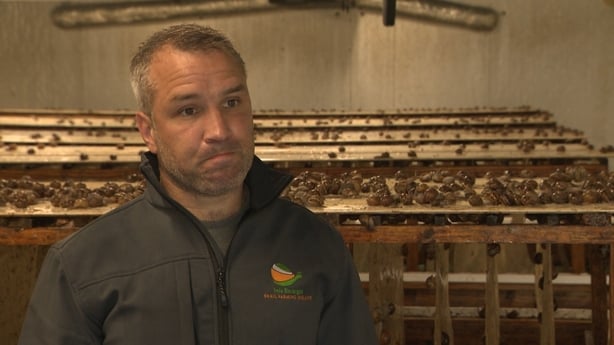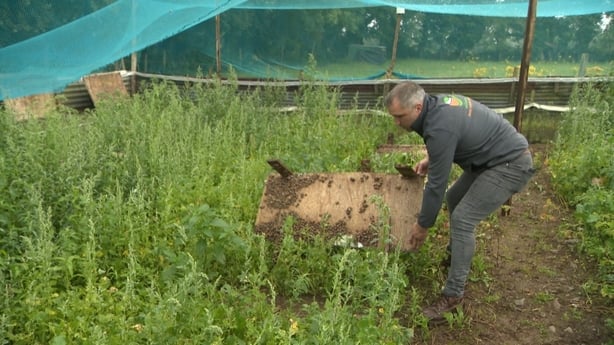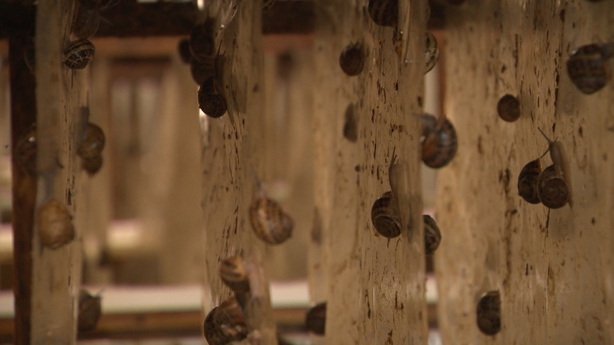When Peter Monaghan accepted that he couldn't get a viable income from the family suckler beef farm, he started looking at alternatives.
He considered all kinds of options like growing fruit and vegetables and diversifying into nut trees.
He even thought about truffle farming.
But after lots of research, he finally settled on native Irish snails.
Millions of them.

And seven years later he's got a thriving business - Inis Escargot - which he's about to take to the next level. On his farm near Virginia, Co. Cavan, he's raising three million snails a year, most of them for export to the continent.
And despite the fact his stock is slow moving, it still needs lots of looking after.
"Snail farming is seven days a week," he says.
"It's almost like milking, you have to be there every evening to feed your snails, manage your snails, pick your snails."

For the last few years he's been supplying the wholesale market and his biggest customer is not - as you might expect - fancy restaurants in France.
Greece is the country where most of Peter's snails end up, where the Irish snail is considered a delicacy.
"I've heard people say they're rubbery, but if you get a fresh Irish snail, cook them yourself, they should be really, really tender.
"They're almost like an earthy taste, fairly similar to a mushroom."
He says he's a fan of them himself and has been known to add them as a pizza topping or as an ingredient to an omelette.
Rearing snails is a three-step process which starts in early spring and concludes in the autumn.

First, he gathers the eggs from his breeding stock and hatches them. Then he brings the young snails on in a polytunnel to protect them from the frost, before putting them in a netted paddock surrounded by an electric fence to ward off birds and other predators.
And that's where his problems can start, because just like cattle, snails have been known to break out.
At night, slugs can short out his electric fences allowing the snails to make a break for it at a top speed of a metre an hour.
That can leave Peter with thousands of snails to gather back in the following morning and that can happen a couple of times a week, something he finds "very frustrating".

Climate change is having an impact on the snail trade. Spain is the biggest grower, but it's starting to struggle in the higher temperatures it's now experiencing.
As a result, growers there are beginning to offer rearing contracts to farmers in other countries, including Ireland.
Peter says his next move is to start processing his own snails and get into retail, as well as wholesale, adding value to his product.
He hopes to start offering snail caviar soon - the eggs are a sought-after luxury in some countries.
He's heard all the snail jokes by now. But if his latest venture takes off, he could well end up having the last laugh.




